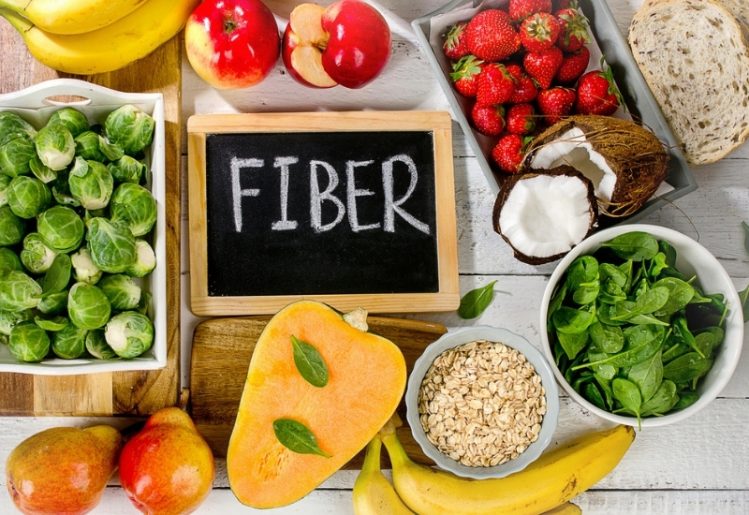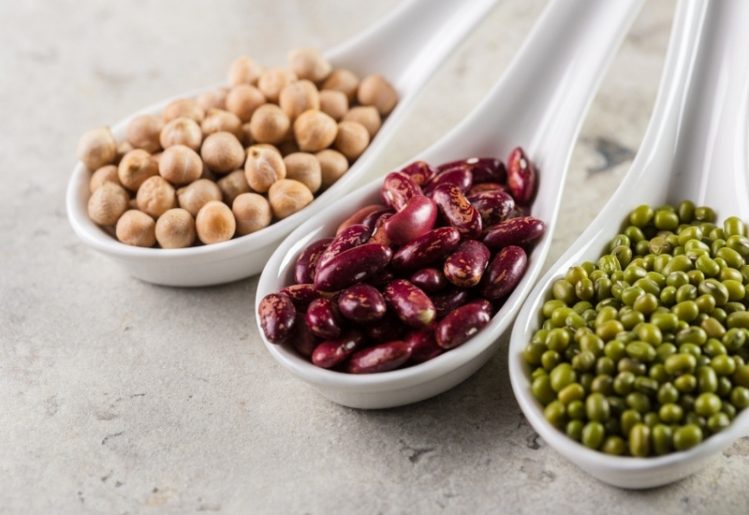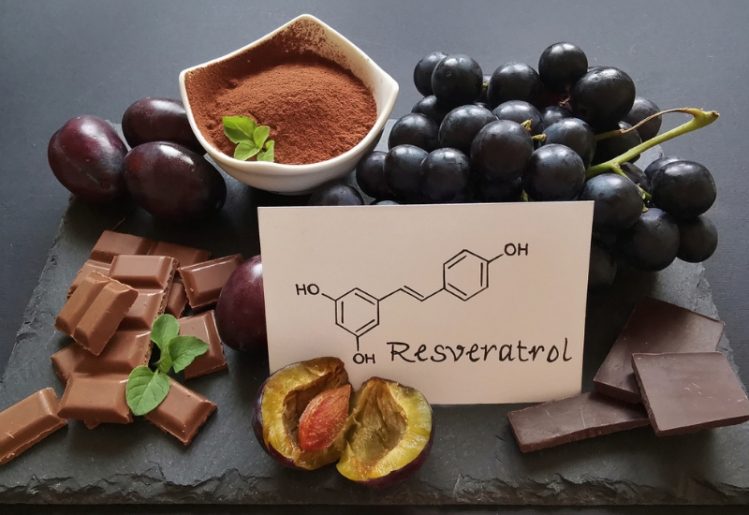Cardiac incidents, including heart attacks, typically increase during the holidays. Dr. Christopher Cutitta, a St. Luke’s University Health Network cardiologist, points to a variety of factors contributing to this unfortunate seasonal heart health trend. These factors include changes in diet and nutrition, disruption of health routines and holiday-related stress. Help keep your holiday season happy by giving your heart health the extra support it needs with these heart-healthy holiday tips.
Moderation Is The Key
 The temptation to overindulge in holiday treats, such as sweets and foods high in fat and sodium can be hard to resist. However, there is a difference between the occasional indulgence and overindulging. Putting on weight during the holiday season is easy when overindulgence becomes a pattern. Instead, take a mindful approach to holiday eating. Enjoy every bite, but be firmly guided by the principle of moderation. By spending your calories wisely and developing good portion control skills, you can still enjoy holiday treats.
The temptation to overindulge in holiday treats, such as sweets and foods high in fat and sodium can be hard to resist. However, there is a difference between the occasional indulgence and overindulging. Putting on weight during the holiday season is easy when overindulgence becomes a pattern. Instead, take a mindful approach to holiday eating. Enjoy every bite, but be firmly guided by the principle of moderation. By spending your calories wisely and developing good portion control skills, you can still enjoy holiday treats.
That Also Applies To Alcohol
Moderation also applies to alcohol intake. Getting together with family and friends can easily result in drinking more than usual. Aside from increasing calorie intake, overindulging in alcohol can contribute to what is often termed holiday heart syndrome. The term is used to describe the atrial fibrillation and heart arrhythmia associated with heavier drinking and binge drinking patterns.
That fast or irregular heartbeat connected to drinking in excess can lead to more serious cardiac incidents in people already facing heart health challenges. A domino effect of one problem leading to the next can take place, resulting in a serious cardiac event. It’s better to limit drinking during the holidays because this season already has a lot of heart-health-impacting factors at play. For a heart-healthy holiday, stay hydrated by substituting water for some, if not most or all, alcoholic drinks.
Don’t Slack on Nutrition
Diet and nutrition are critical elements of heart health. During the holiday season, it can be all too tempting to overindulge on holiday treats. That can easily result in eating less of the nutritionally sound, real food best for heart health, even when practicing moderation with holiday eating. Rather than fall short nutritionally, consider adding nutritional supplements to your holiday season routine. Those already facing heart-health challenges and those with a higher than average risk of developing heart problems may want to consider supplements that specifically promote heart health.
Look for a high-quality, science-based supplement that promotes cardiac system health via essential heart-health nutrients. These include all of the B vitamins, calcium, magnesium, the L-amino acids, lycopene and biotin, along with other nutrients, all in just the right balance. Ensuring proper nutrition is a smart decision for helping protect heart health at any time of year, but can be especially important during the holiday season.
Maintain Healthy Routines
With all of the holiday preparations and events, healthy routines are often disrupted. People traveling to visit family and friends may forget to pack cardiac medications. In the hustle and bustle of the season, some forget to take essential heart medications at the usual times. Winter weather plus the holiday season can disrupt exercise habits, reducing physical activity.
For optimum heart health, and a heart-healthy holiday season in particular, it’s important to maintain healthy routines. If family or friends visiting has led to skipping the gym, slip in some extra physical activity daily. Show off your local parks to your visitors and get everybody out walking. Give the dog an extra walk and make it a brisk one. Find or create a simple home work out to do. Make sure that you don’t allow your sleep schedule to be overly disrupted.
Utilize Stress Management Strategies
Time pressures, money worries, emotionally stressful family gatherings and coping with the loss of a loved one are just a sampling of the stress that can be heightened during the holiday season. Stress is a major player in heart health, so learning to manage it in healthy ways is essential. Stress can impact heart health in two ways: directly, through the production of stress hormones like cortisone, and indirectly via your actions, like drinking or eating unhealthy comfort foods to alleviate stress.
 Good nutrition and exercise help alleviate stress in ways that promote health. Meditation is another effective means. Developing concrete skills to target the sources of stress can be highly effective in reducing holiday stress. For example, developing time management skills can help increase productivity and reduce lateness, thereby reducing stress. Learning conflict resolution skills and strategies can help with difficult family situations.
Good nutrition and exercise help alleviate stress in ways that promote health. Meditation is another effective means. Developing concrete skills to target the sources of stress can be highly effective in reducing holiday stress. For example, developing time management skills can help increase productivity and reduce lateness, thereby reducing stress. Learning conflict resolution skills and strategies can help with difficult family situations.
Emotionally-based stress related to grieving can be trickier to navigate. However, helping others through meaningful volunteer work is often very helpful, turning focus outward and reducing the opportunity to dwell on one’s own pain and loss by helping others. The holiday season can be especially lonely for many people, so even something as simple as visiting seniors in nursing homes can make a real difference.
Take It One Choice At A Time
As Dr. Elizabeth Klodas points out, better heart health is made up of a multitude of small choices. For a more heart-healthy holiday season, continuously strive to make more great choices than poor ones, indulging wisely while enjoying the season and the people you share it with.
 Initially introduced in the early 1990s, whole body vibration is a form of passive exercise that involves using vibrations to send waves of energy through the entire body. The process involves standing, sitting or lying on a platform and enduring a series of vibrations. The vibrating energy causes your muscles to contract and expand repeatedly throughout the process, helping to grow and tone muscle mass. Daily 15 minute sessions may promote weight loss, improve blood flow and decrease the production of stress hormones.
Initially introduced in the early 1990s, whole body vibration is a form of passive exercise that involves using vibrations to send waves of energy through the entire body. The process involves standing, sitting or lying on a platform and enduring a series of vibrations. The vibrating energy causes your muscles to contract and expand repeatedly throughout the process, helping to grow and tone muscle mass. Daily 15 minute sessions may promote weight loss, improve blood flow and decrease the production of stress hormones. Some foods that are high in fiber include onions and similar foods, such as leeks and garlic. Artichokes are also high-fiber foods. Eating more of these types of veggies will help, because it takes longer for the body to digest natural fiber. As a result, the prebiotics in the fiber will be absorbed into the gut microbiome, where they nourish the bacteria already thriving there.
Some foods that are high in fiber include onions and similar foods, such as leeks and garlic. Artichokes are also high-fiber foods. Eating more of these types of veggies will help, because it takes longer for the body to digest natural fiber. As a result, the prebiotics in the fiber will be absorbed into the gut microbiome, where they nourish the bacteria already thriving there. The ideal amount of sleep for adults is seven to nine hours per night. In some studies, getting less than five hours or more than nine hours resulted in a buildup of calcium in the blood; elevated calcium levels are considered an early warning sign of heart disease. Keeping nightly sleep duration between seven and nine hours can help protect against too much calcium in the arteries.
The ideal amount of sleep for adults is seven to nine hours per night. In some studies, getting less than five hours or more than nine hours resulted in a buildup of calcium in the blood; elevated calcium levels are considered an early warning sign of heart disease. Keeping nightly sleep duration between seven and nine hours can help protect against too much calcium in the arteries. Another recent research project focused on the cardiovascular benefits of consuming more legumes, particularly peas and beans. These foods are known to be rich in protein, fiber and micronutrients, while also possessing very low levels of fat and sugar. Due to these health benefits, people suffering from diabetes, low blood pressure and high cholesterol are
Another recent research project focused on the cardiovascular benefits of consuming more legumes, particularly peas and beans. These foods are known to be rich in protein, fiber and micronutrients, while also possessing very low levels of fat and sugar. Due to these health benefits, people suffering from diabetes, low blood pressure and high cholesterol are  Diseases that affect the heart and blood vessels all fall under the broader term of cardiovascular disease, and many of those conditions are caused by atherosclerosis. Atherosclerosis is a condition resulting from plaque accumulation on the walls of the arteries, which causes blood flow to become inhibited. Since blood flows more slowly, clots can form that block blood from passing through the arteries and reaching the brain, heart and other vital organs, boosting the probability that a stroke or heart attack will occur.
Diseases that affect the heart and blood vessels all fall under the broader term of cardiovascular disease, and many of those conditions are caused by atherosclerosis. Atherosclerosis is a condition resulting from plaque accumulation on the walls of the arteries, which causes blood flow to become inhibited. Since blood flows more slowly, clots can form that block blood from passing through the arteries and reaching the brain, heart and other vital organs, boosting the probability that a stroke or heart attack will occur. Rather than eating three big meals every day, it’s important to eat wisely. It’s best to start off with a moderate breakfast that includes good natural sources of protein and fiber. An omelet that’s prepared with fresh veggies is one suggestion. For the remainder of the day, choose healthy snacks to munch on periodically, such as almonds, carrot sticks and cheese. This will help you eat less at dinner.
Rather than eating three big meals every day, it’s important to eat wisely. It’s best to start off with a moderate breakfast that includes good natural sources of protein and fiber. An omelet that’s prepared with fresh veggies is one suggestion. For the remainder of the day, choose healthy snacks to munch on periodically, such as almonds, carrot sticks and cheese. This will help you eat less at dinner. Originating in South India, bitter melon was first imported by China in the 1300s and, as it gained popularity, was highly exported to Africa and parts of the Caribbean. The food is particularly bitter, which is how it gets its name, and for that reason has become a staple food in Asian cuisine.
Originating in South India, bitter melon was first imported by China in the 1300s and, as it gained popularity, was highly exported to Africa and parts of the Caribbean. The food is particularly bitter, which is how it gets its name, and for that reason has become a staple food in Asian cuisine. Finally, bitter melon can
Finally, bitter melon can  Aside from the protective role it plays in grape plants, resveratrol contains antioxidants that are also extremely beneficial to human health. The high content of resveratrol in red wine delivers powerful antioxidants into the blood supply, which help to protect against free radicals in the body.
Aside from the protective role it plays in grape plants, resveratrol contains antioxidants that are also extremely beneficial to human health. The high content of resveratrol in red wine delivers powerful antioxidants into the blood supply, which help to protect against free radicals in the body. As we get older, we become more susceptible to conditions that can affect our ability to see well. Partial or complete vision loss can result from glaucoma, diabetic retinopathy, cataracts or macular degeneration. Since the antioxidants in red wine help to protect against oxidative stress, the inflammation that increases the risks of developing these conditions is also reduced. While it’s necessary to take other steps to protect your vision, moderate red wine consumption can also help.
As we get older, we become more susceptible to conditions that can affect our ability to see well. Partial or complete vision loss can result from glaucoma, diabetic retinopathy, cataracts or macular degeneration. Since the antioxidants in red wine help to protect against oxidative stress, the inflammation that increases the risks of developing these conditions is also reduced. While it’s necessary to take other steps to protect your vision, moderate red wine consumption can also help.